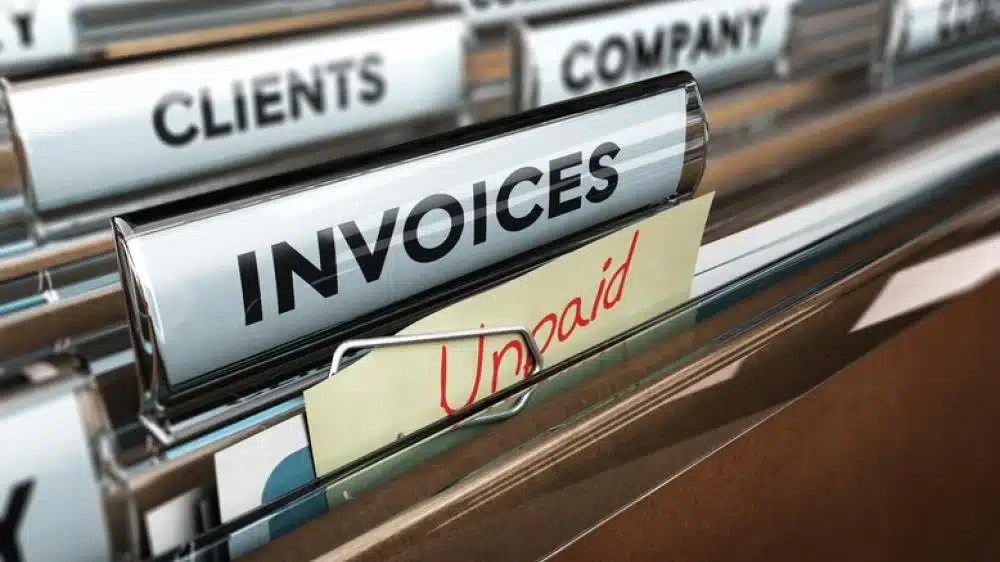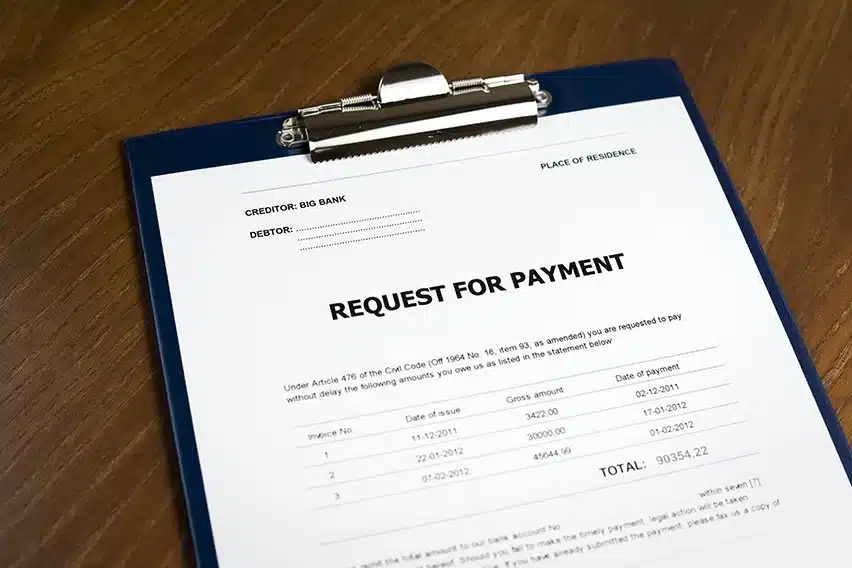Dealing with clients who refuse to pay for completed work can be a frustrating experience for any business. It not only impacts cash flow but can also strain relationships and create unnecessary stress. Understanding the reasons behind non-payment—whether due to financial difficulties, dissatisfaction with the work, or simple oversight—is crucial in addressing these disputes effectively. Managing unpaid invoices becomes even more challenging when dealing with sensitive cases like managing estate debts, where financial obligations after death need to be considered.
At Bell Mercantile, our experienced Melbourne Debt Collectors believe that handling payment disputes professionally is key to maintaining your business’s reputation and client relationships. Open communication and a thorough understanding of the situation can often lead to amicable resolutions. However, when these efforts fall short, engaging debt recovery services can provide invaluable support. Professional debt collection agencies are equipped with the expertise and strategies necessary to navigate these challenges while upholding your business’s integrity. This can include everything from credit control procedures to debt validation to ensure compliance with Australian debt recovery laws.
By utilising effective communication strategies and adhering to debt collection laws in Australia, you can resolve payment issues efficiently. In this article, we will explore actionable steps you can take when faced with clients refusing to pay for work completed, highlighting best practices in documentation, negotiation, and when it might be time to involve a debt recovery agency. With the right approach, you can turn a potentially negative situation into an opportunity for constructive dialogue and resolution.
Understanding the Reasons Behind Non-Payment
Understanding the underlying reasons for non-payment is crucial in addressing these disputes effectively. Common factors include financial difficulties, where clients may genuinely struggle to meet their obligations due to cash flow issues or unexpected expenses. In other cases, dissatisfaction with the work delivered can lead to reluctance in settling invoices. Miscommunication about project expectations or payment terms can also contribute significantly to payment disputes. This can even extend into third-party debt recovery situations where the involvement of multiple stakeholders complicates the recovery process.
Recognizing these reasons allows businesses to approach the situation with empathy and clarity. For instance, if financial difficulties are at play, a flexible payment plan could be a viable solution that benefits both parties. On the other hand, if client dissatisfaction is the issue, it’s essential to engage in open dialogue to understand their concerns and rectify any misunderstandings. Common misconceptions about debt collection often lead clients to believe that aggressive tactics will be employed, when in reality, debt collection best practices promote fairness and communication.
Moreover, having clear documentation for debt recovery—such as contracts, invoices, and previous correspondence—can help clarify any ambiguities and reinforce your position when discussing outstanding payments. By addressing these issues proactively and understanding the reasons behind non-payment, you can not only resolve current disputes but also strengthen future client relationships. Engaging professional debt recovery services can further support your efforts, providing expertise in navigating complex situations while ensuring compliance with debt collection regulations Australia.
Initial Steps to Resolve Payment Issues
The first steps you take can significantly influence the outcome of the situation. Start by conducting a thorough review of the contract terms and any previous communications. This step is crucial as it helps clarify the agreed-upon payment terms and any obligations on both sides, including tracking debtor communications. Understanding these details not only strengthens your position but also prepares you for a productive conversation with the client.
Once you have a clear understanding of the contractual obligations, reach out directly to discuss the issue. A personal approach can often defuse tension and foster a more amicable resolution. Use effective communication methods to express your concerns while maintaining a professional tone. It’s important to listen actively to your client’s perspective, as this can uncover underlying issues such as financial difficulties or miscommunication that may have led to their refusal to pay.
Remember, your goal is to resolve payment issues without damaging the relationship you’ve built with your client. If initial discussions do not yield results, consider documenting all interactions and outlining the next steps clearly, as this will be invaluable if you need to escalate the matter later. There are plenty of good reasons why you should hire a professional debt collection agency for your business at this stage as they can provide additional support, ensuring that you take the right legal action steps and processes for debt recovery effectively while preserving your client relationships.
The Importance of Documentation & Effective Communication
One of the core tenants of good debt collection is proper documentation and it is your strongest ally when it comes to supporting claims for payment. When a client refuses to pay for completed work, having a solid foundation of documentation can make all the difference. Essential documents such as invoices, contracts, and email correspondence play a pivotal role in reinforcing your position. Financial records for debt recovery can offer clear evidence during court proceedings, especially if court proceedings for debt recovery become necessary.
Clear documentation serves as a protective measure against potential conflicts. By maintaining organised records, you can easily reference previous agreements and communications, which is invaluable during discussions with clients about outstanding payments. This level of preparedness demonstrates professionalism and can often lead to quicker resolutions, as clients are more likely to respond positively when they see that you have all the necessary information at hand. In addition to documentation, implementing automated reminders can be extremely useful in keeping your clients on track with their payments. Debt collection software that automates these reminders can streamline communication and ensure you’re not missing critical follow-ups.
Effective communication is equally crucial when addressing overdue payments. When reaching out to clients about unpaid invoices, it’s important to approach the conversation with professionalism and empathy. Begin by acknowledging their situation and expressing your willingness to understand any challenges they may be facing. This approach not only fosters goodwill but also opens the door for constructive dialogue.
Utilising persuasive communication techniques can significantly enhance your chances of recovering outstanding payments. For example, clearly stating the purpose of your communication while maintaining a professional tone can encourage clients to take action. Personalising your messages by referencing previous interactions or specific details about the project can also make a substantial impact. Additionally, being mindful of cultural sensitivities in your communication style can help build rapport and trust with clients from diverse backgrounds.
When to Consider Professional Debt Collection Services
Engaging a debt recovery agency can be a strategic move when clients refuse to pay for work completed, especially after initial attempts to resolve the issue have not yielded results. There are specific scenarios where turning to professional debt collection services becomes not just beneficial but necessary. For instance, if a client is consistently non-responsive or if the amount owed is substantial, involving a professional agency can streamline the process and increase the likelihood of recovering outstanding payments. These agencies bring expertise in navigating complex situations, allowing you to maintain your focus on your core business operations without getting bogged down in protracted disputes.
Professional debt recovery services employ various strategies that effectively recover debts while preserving client relationships. They understand the delicate balance between assertiveness and professionalism, ensuring that communication remains respectful and constructive. This approach not only aids in recovering funds but also minimises the risk of damaging long-term relationships with clients. By utilising effective communication methods and persuasive techniques, these agencies can often resolve issues that may seem insurmountable to business owners.
Legal Considerations in Debt Recovery
Understanding the legal framework surrounding debt collection in Australia is essential for any business facing payment disputes. Australian debt collection laws outline the rights of both creditors and debtors, ensuring that all parties are treated fairly throughout the recovery process. As a creditor, you have specific rights that protect your interests, but it is equally important to respect the legal rights of your clients. This knowledge can significantly impact your collection efforts and help you navigate potential pitfalls. You may wish to use a lawyer as well or instead of your debt collection agency to recover debt legally and the scenario for this is often complicated and depends on a few different factors regards the type of debt being collected often. This is a topic which we have written about before on our blog as to whether you should choose a debt collection agency vs lawyers to recover debts owed.
If payment remains elusive despite all reasonable efforts, there are legal actions you can pursue, such as filing a claim in small claims court or seeking mediation through bodies like the Victorian Civil and Administrative Tribunal (VCAT) or the NSW Civil and Administrative Tribunal (NCAT). These options provide structured avenues for dispute resolution while adhering to Australian Consumer Law and guidelines set forth by the Australian Fair Trading Commission.
Best Practices for Future Transactions
To prevent payment disputes in future transactions, establishing clear agreements and maintaining open lines of communication from the outset is essential. When you set clear payment terms upfront, you create a mutual understanding that can significantly reduce the likelihood of misunderstandings later on. This proactive approach not only clarifies expectations but also empowers both parties to adhere to the agreed-upon terms. Regular contact throughout the project can further enhance this relationship, ensuring that any concerns are addressed promptly and effectively.
In addition to clear agreements, consider implementing automated reminders or follow-ups as part of your payment management strategy. These tools can serve as gentle nudges to clients, reminding them of upcoming due dates or outstanding invoices without the need for direct confrontation. By incorporating these reminders into your workflow, you demonstrate diligence and professionalism, reinforcing your commitment to timely payments while keeping the lines of communication open.
When a client refuses to pay for completed work it can be challenging, but with the right strategies in place, you can effectively manage these disputes. Key points discussed in this article highlight the importance of understanding the reasons behind non-payment, maintaining thorough documentation, and employing effective communication strategies.
At Bell Mercantile, we recognize that engaging professional debt recovery services not only enhances your chances of collecting unpaid invoices but also ensures compliance with all relevant laws. Our team is dedicated to helping businesses deal with these issues with more confidence, providing tailored solutions that respect both creditor rights and client relationships. By understanding when to seek professional help and being aware of your legal standing, you can effectively manage client payment disputes while safeguarding your business’s reputation. Why not call us today on +61 3 9596 9311 for a friendly chat and some helpful advice, or drop us a message via our Contact Us Page to see how we can assist you further.
FAQs: Resolving Client Payment Disputes
What can I do if a client refuses to pay for services rendered?
If a client refuses to pay for services rendered, your first step should be to try and resolve the issue amicably. This could involve reaching out to the client directly to discuss the situation and understand their reasons for non-payment. If this fails, you may need to consider legal action.
How can I resolve a payment dispute with a client?
There are several ways to resolve a payment dispute, including:
- Negotiation: Attempt to negotiate a payment plan or settlement with the client.
- Mediation: A neutral third party can help you and the client reach an agreement.
- Arbitration: A neutral third party can make a binding decision on the dispute.
Legal Action: If all other options fail, you may need to take legal action to recover the unpaid amount.
What are the legal consequences of not paying a contractor?
If a client fails to pay a contractor for services rendered, the contractor may be able to sue the client for breach of contract. This could result in the client having to pay the unpaid amount, plus interest and court costs.
Can a contractor sue a client for unpaid work?
Yes, a contractor can sue a client for unpaid work. However, the contractor must be able to prove that the work was completed and that the client agreed to pay for it.
What should I do if a client is not happy with my work and refuses to pay?
If a client is dissatisfied with your work and refuses to pay, it’s important to try to resolve the issue amicably. You may need to offer to make changes or provide additional services to satisfy the client. If this fails, you may need to consider legal action.
How can I prevent future payment disputes with clients?
There are several things you can do to prevent future payment disputes, including:
- Drafting clear and comprehensive contracts: Ensure that your contracts clearly outline the scope of work, payment terms, and dispute resolution procedures.
- Communicating regularly with clients: Keep clients updated on the progress of the work and address any concerns they may have.
- Getting payment upfront or in instalments: This can help to reduce the risk of non-payment.
Using a reputable payment processor: A payment processor can help to ensure that payments are made on time.
What are the signs of a potential payment dispute?
Some signs of a potential payment dispute include:
- A client delaying or refusing to respond to your invoices.
- A client raising concerns about the quality of your work.
- A client making excuses for not paying.
- A client threatening legal action.
How can I negotiate a payment plan with a client?
If you are unable to collect the full amount of an unpaid invoice, you may be able to negotiate a payment plan with the client. When negotiating a payment plan, it’s important to be flexible and understanding. You may also want to consider offering a discount on the total amount owed.
When should I consider legal action to recover unpaid fees?
If you have exhausted all other options for resolving a payment dispute, you may need to consider legal action. It’s important to consult with an attorney to discuss your options and determine whether legal action is the best course of action.
What are the costs associated with legal action for unpaid work?
The costs associated with legal action for unpaid work can vary depending on the complexity of the case and the jurisdiction in which you are filing the lawsuit. In general, legal costs may include court fees, attorney’s fees, and expert witness fees.
What are the Australian laws regarding unpaid invoices?
The Australian Consumer Law (ACL) provides consumers with certain rights and protections in relation to goods and services. If a business fails to provide goods or services as agreed, the consumer may be entitled to a remedy, such as a refund or repair.
Can I take a client to court for unpaid work in Australia?
Yes, you can take a client to court for unpaid work in Australia. However, you must be able to prove that the work was completed and that the client agreed to pay for it.
What is the statute of limitations for unpaid invoices in Australia?
The statute of limitations for unpaid invoices in Australia varies depending on the state or territory. However, it is typically between six and seven years.
How can I file a complaint against a client for non-payment in Australia?
If you have a complaint against a client for non-payment, you can file a complaint with the Australian Competition and Consumer Commission (ACCC). The ACCC can investigate your complaint and take appropriate action.
What are the rights of contractors in Australia?
Contractors in Australia have certain rights under the Australian Consumer Law. These rights include the right to be paid for work completed and the right to be treated fairly by clients.
What are the rights of clients in Australia?
Clients in Australia also have certain rights under the Australian Consumer Law. These rights include the right to receive goods and services that are fit for purpose and the right to be treated fairly by businesses.
How can I protect myself from payment disputes in Australia?
There are several things you can do to protect yourself from payment disputes, including:
- Drafting clear and comprehensive contracts
- Communicating regularly with clients
- Getting payment upfront or in instalments
- Using a reputable payment processor
- Understanding your rights under Australian law
What are the best practices for drafting contracts to avoid payment disputes?
When drafting contracts, it’s important to be clear and concise. The contract should clearly outline the scope of work, payment terms, and dispute resolution procedures. It is also important to have the contract signed by both parties.
How can I collect unpaid debts in Australia?
If you are unable to collect an unpaid debt through negotiation or mediation, you may need to take legal action. There are several different types of legal action that you can take, including filing a small claims court action or hiring a debt collection agency in Australia.





